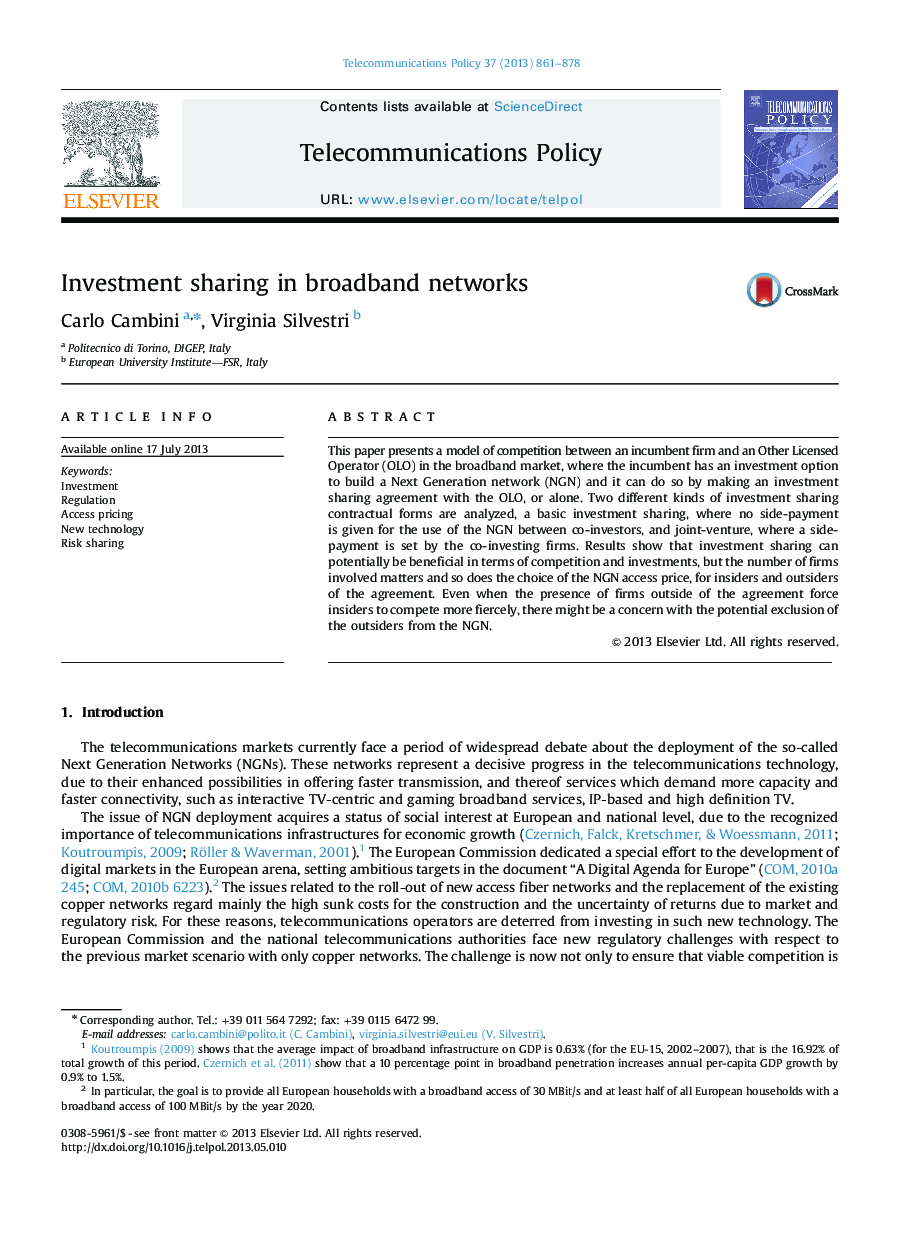| Article ID | Journal | Published Year | Pages | File Type |
|---|---|---|---|---|
| 556746 | Telecommunications Policy | 2013 | 18 Pages |
•An incumbent can define a sharing agreement with an OLO to build a Next Generation network (NGN).•We analyze different kinds of contractual forms, basic investment sharing and joint-venture.•Results show that basic investment sharing can potentially be beneficial in terms of competition and investments.•The choice of the NGN access price, for insiders and outsiders of the agreement, matters.•Exclusion of the outsiders from the NGN emerge, calling for some regulatory intervention.
This paper presents a model of competition between an incumbent firm and an Other Licensed Operator (OLO) in the broadband market, where the incumbent has an investment option to build a Next Generation network (NGN) and it can do so by making an investment sharing agreement with the OLO, or alone. Two different kinds of investment sharing contractual forms are analyzed, a basic investment sharing, where no side-payment is given for the use of the NGN between co-investors, and joint-venture, where a side-payment is set by the co-investing firms. Results show that investment sharing can potentially be beneficial in terms of competition and investments, but the number of firms involved matters and so does the choice of the NGN access price, for insiders and outsiders of the agreement. Even when the presence of firms outside of the agreement force insiders to compete more fiercely, there might be a concern with the potential exclusion of the outsiders from the NGN.
